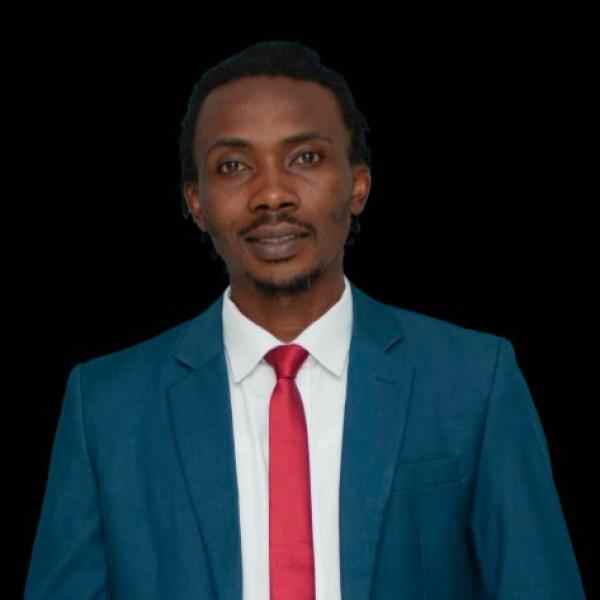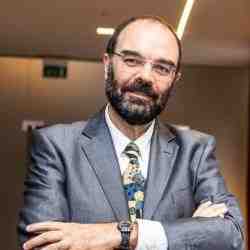Introduction
Sage is revolutionizing value chains for entrepreneurs by establishing public production facilities which function as incubators that enable the utilization of previously wasted produce and generate wealth for food industry entrepreneurs. Starting in South Kivu in 2018, he is expanding province-by-province throughout the Democratic Republic of Congo, fostering a conducive business climate for local start-ups and entrepreneurs.
The New Idea
As a system-change social entrepreneur, Sage is committed to transforming the food production landscape by empowering communities and transitioning informal businesses into formal enterprises. Sage recruits, prepares and launches a new generation of young entrepreneurs through the Sage Entrepreneurs Academy, who had been displaced by ongoing conflict and/or were unable to complete their primary and secondary education in the DRC. His longer-term goal in each province is that these networks of successful local entrepreneurs become contributing local leaders in their community and proud lifelong members of the Sage Entrepreneurs Academy Alumni network.
Sage has successfully expedited the transition of small business owners from the informal economy to the formal economy, significantly reducing the time required. By negotiating with the government, Sage has obtained tax exemptions for entrepreneurs over a three-year period. This, along with providing access to raw materials and developing income-generating systems, attracts investors and maximizes their chances for success. Sage is working with the DRC government to establish a sustainable business climate that attracts investors and encourages entrepreneurship by developing strategies, addressing regulatory barriers, and implementing investor-friendly initiatives. His work stimulates economic growth, create jobs, reduce poverty, and foster overall socio-economic development in the DRC.
Sage has designed a step-by-step supply chain and value chain, setting an example for others to follow. By addressing critical market gaps, Sage successfully resolves a major problem by collaborating with the DRC government to develop strategies and policies that attract investment, stimulate economic growth, and create a favorable business environment. Starting with addressing production gaps using local solutions, Sage's approach initially targeted business-to-consumer (B2C) engagement and has progressed to business-to-business (B2B) involvement. In Uganda, his solution led to the commercialization of cookies and biscuits, facilitated by the establishment of public production facilities. These facilities provide opportunities for individuals who previously faced challenges in production.
Sage's innovativeness in creating Public Production Labs to give young food business entrepreneurs access to the technology they need to test and refine potential products and work as incubators for their businesses has been quite remarkable. Recognizing evolving market dynamics and the rise of franchising, Sage reoriented training at the Academy to equip young entrepreneurs with the necessary skills to stay competitive. He also shared this valuable information through engagements with Enterprise Uganda, fostering knowledge dissemination. To maximize State-Level Impact, Sage's model has been scaled up to reach thousands of entrepreneurs in various states of the Democratic Republic of Congo such as Tanganyika, South Kivu, North Kivu, Maniema, Haut-Katanga, and Luaba and by implementing his strategies and providing support, Sage has improved the prospects and success rates of these entrepreneurs.
Sage has created a comprehensive value chain, encompassing the Public Production Lab, financing, and marketing, benefiting small business owners. This tested approach has brought economic solutions to the Great Lakes region, generating employment for disadvantaged communities. His model has gained recognition and acceptance from Enterprise Uganda, a government entity dedicated to creating entrepreneurs in farming and food production, with a focus on high-quality products. Sage's system changes contributions in the food business resulted in collaborations with public-private partnerships focused on supporting SMEs, providing guidance on identifying, selecting, and supporting potential entrepreneurs at every stage of the process.
The Problem
Entrepreneurs in the Democratic Republic of Congo (DRC) face numerous challenges, including limited starting capital, lack of expertise in the food production industry, burdensome business tax, and absence of quality products meeting international standards. Inadequate infrastructure, such as electricity supply and limited connectivity between states, hinders the development of production industries. The informal way of doing business prevents the transition from the informal economy to the formal economy and expertise in the food production industry.
The lack of access to capital and resources is a significant barrier for young entrepreneurs in the Democratic Republic of Congo (DRC). Without proper financing and support, it is extremely challenging for these aspiring business owners to get their ventures off the ground and achieve sustained growth. The issue is further exacerbated by the absence of clear and effective government policies that would enable young entrepreneurs to access the necessary funding, training, and infrastructure required to succeed. This lack of a conducive policy environment creates a vicious cycle where young people with innovative ideas and entrepreneurial spirit are unable to translate their vision into thriving enterprises, stifling economic development and job creation in the country.
The Democratic Republic of Congo (DRC) faces significant challenges when it comes to the tax environment for entrepreneurs and small businesses, as the government imposes an excessive 43 different taxes on startups and small enterprises, creating a major obstacle for starting and growing a business through this "Tax Harassment" that imposes a significant financial burden, making it extremely difficult for entrepreneurs to thrive.
The dominance of the informal economy poses a significant challenge for startups in the Democratic Republic of Congo (DRC). Many entrepreneurs are forced to operate within the informal sector due to the lack of access to resources, capital, and an enabling policy environment. This informal way of doing business creates many problems, including limited access to formal markets, restricted growth and investment opportunities, and a higher risk of exploitation. The informal economy also perpetuates poverty and stunts the country's overall economic development.
The Strategy
Recognizing the systemic challenges, Sage established the Sage Entrepreneurs Academy and made it a priority to advocate for policy reforms and forge partnerships with financial institutions and other stakeholders to unlock the potential of the DRC's young entrepreneur community. The aim is to provide them with the resources, mentorship, and an enabling environment they need to transform their ideas into successful, sustainable businesses that can contribute to the country's economic transformation.
Sage has actively worked towards addressing tax issues through advocacy and collaboration with stakeholders. This has resulted in successful negotiations for tax exemptions and simplified tax structures in multiple states, creating a more favorable business environment and allowing entrepreneurs to focus on their enterprises' growth.
By establishing Public Production Labs through the academy, Sage aims to facilitate the transition of startups and small enterprises from the informal to the formal economy. It provides the necessary support in the form of an incubator with resources. It assists with integration into established supply chains and distribution networks. It helps empower entrepreneurs to operate within the formal sector, which not only enhances their chances of success but also contributes to the broader economic transformation of the DRC.
Sage recognizes the potential of those without formal education and provides tailored support to enable them to start their own ventures and seamlessly enter the formal economy. He successfully implemented his model in Uganda while also replicating the Public Production Labs in the DRC to provide a gateway to the formal economy for refugees and other disadvantaged communities. This has empowered them through informal education and integration into the food industry, which has significantly reduced failures faced by small business owners embracing this growing model. He has scaled up his model to reach thousands of entrepreneurs across various states, improving their prospects and success rates. Sage has also partnered with African banks to act as a guarantor for young entrepreneurs, facilitating their access to financial resources. He has negotiated tax exemptions and secured financial backing from institutions and investors to alleviate the burden on entrepreneurs and help them improve product quality and competitiveness. The Academy secures favorable financing for its members with the First Bank of Nigeria pre-qualifies Acceleration Phase graduates for start-up loans, and the Academy has similar arrangements with Equity Bank. By offering these chapters and financing options, the Academy comprehensively supports its large network of food entrepreneurs across Uganda and the DRC.
In 2012, the growing reputation of the Sage Entrepreneurs Academy in Uganda led Sage to begin to hold what became an annual international meeting hosted by the Academy called the "Entrepreneurs International Summit." The goal of this summit was to showcase innovations in the fast-changing landscape of the food business industry for Small Medium Entreprises in African countries as well as the Americas and Asia. The events regularly draw attendees from business, government and citizen sectors, depending on that year's theme. In 2017, the largest single contingent attending the event came from the Democratic Republic of Congo. It included the Federal Minister of Education, the Commissioner of small and medium enterprises, the Ministry of Disaster Preparedness, influential members of the Parliament in the province of South Kivu, as well as leading business entrepreneurs and members of Congolese civil society. They met with Sage separately as a group, and their message was that they needed Sage and the Sage’s leadership in the DRC's citizen sector to foster SME development (as he had in Uganda), and if he committed to do that, they would work with him and use their influence to foster the growth of the Academy in the DRC and its impact on policies aimed at fostering SME development.
Provincial Governors in North Kivu, Tanganyika, Maniema, and Lualaba announced the consolidation of Small Medium Enterprises (SMEs) and the eradication of tax harassment practices. Additionally, in the same year, a simplified tax system was introduced, replacing 43 separate taxes with a reduced tax and putting an end to the pre-payment harassment of taxes. During those years, Sage launched Sage Academy in these four provinces, selected young people who would be food business entrepreneurs for training at his Academy, and hosted public discussions about making province-level investments in related infrastructure, including the Public Production Labs for food business entrepreneurs and related technical training of personnel. In February 2018, Sage established the first office for his non-profit organisation Sage Entrepreneurs Academy in the Democratic Republic Congo, in the provincial capital of Bukavu in South Kivu. The province of North Kivu followed that up with a new policy offering a three-year tax exemption for new small and medium-sized enterprises. Sage has successfully tackled this in five states by collaborating with governors and other stakeholders. Through advocacy and engagement, Sage has played a pivotal role in putting an end to excessive tax burdens, creating a more conducive environment for small businesses to thrive.
Since 2018, the Sage Entrepreneurs Academy in the Democratic Republic of Congo has recruited more than 20,000 young boys and girls and 8000 women aged between 25 and 35 years. Sage's programs in these five provinces provide step-by-step initial training, incubation, acceleration, and long-term membership opportunities for aspiring business entrepreneurs. In Uganda, the Academy covers its cost for the initial training through sponsorship and student self-funding. It covers the costs of the incubation phase through consulting fees earned by the Academy for research on selected topics, as well as fees earned for co-working space and use of its Production Lab. It covers the cost of the Acceleration Phase through membership fees and donations.
To serve its growing alumni membership as well as those currently in training, the Sage Academy now has over 30,000 food industry entrepreneurs from Uganda and the Democratic Republic of Congo. To support this expansive network, the Academy holds quarterly meetings for members to discuss trends and topics directly or indirectly relevant to the food business in Africa.
The Person
Sage Rutakaza was born in 1987 in Kiyovu, Kigali, Rwanda. At the age of 7, he witnessed the massacre and killing of his relatives and was forced to flee to the Democratic Republic of Congo. This was Sage's first experience of displacement during the Rwandan genocide in 1994. In the chaos, Sage was separated from his family and placed in an SOS orphanage. Just a few years later, he was displaced again by the "war of liberation" and ended up in the Nakivale resettlement camp in Uganda, where the majority of the residents were Congolese. It was in Nakivale in 2006 that Sage learned valuable baking and juice production skills, which he would later use to start his own donut and cookie business, which became his means of livelihood.
Through this entrepreneurial experience, Sage recognized that many young people like him lacked access to well-equipped production facilities to develop their product prototypes affordably and sustain their business startups. From there, he was adopted by a Ugandan woman and moved to Mbarabara, the second largest city in Uganda after Kampala. In Mbarabara, at the age of 17, Sage launched a successful donut business at the city's largest open-air market, eventually recruiting other displaced and poor youth to work with him in wholesale production and distribution.
Sage's resilience and entrepreneurial spirit did not stop there. At the age of 19, he went back to school and advanced rapidly. Six years later, Sage launched a not-for-profit organization, Sage Entrepreneurs Academy, to identify, train, and launch displaced and disadvantaged young entrepreneurs to start their own food businesses. Sage Entrepreneurs Academy aims to catalyze the growth of agriculture-based small and medium enterprises in the region, strengthening the overall agricultural value chain. Sage works closely with the government as a chief advisor, contributing with his expertise to develop strategies for creating small businesses and fostering a favorable business climate. He also collaborates with academic institutions to provide practical learning services and ensure entrepreneurs have the necessary skills to succeed. He is also the author of a few books that look at his life, one among them being The Hero Who Hanged His Poverty to Death.
Despite the challenging circumstances of his early life, Sage has become a beacon of hope, transforming the lives of young people across East and Central Africa.




